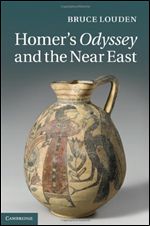
I encourage everyone interested in James McGrath’s smear campaign against Earl Doherty with his “reviews” of his book to read Peter Kirby’s open letter to McGrath.
Go to Open Letter to James McGrath.
Peter has also indicated on McGrath’s blog that he has posted this open letter, as well as sending him a copy by email.
I am pleased to read Peter’s response. The intellectual dishonesty and betrayal of all that a public intellectual should stand for was so appalling in his recent post supposedly addressing Doherty’s chapter 5 that I needed to avoid attempting to respond this evening just to avoid feeling ill. In his latest “review” he even “justifies” not giving a fair account of what Doherty himself writes. It is clear his sole intention is to stop people reading Doherty’s book and to stifle any serious discussion about mythicism.
For the record, I copy below excerpts from earlier posts of mine offering views by biblical scholars about Doherty’s work that are quite different from McGrath’s. Does McGrath compare Professor Stevan Davies or Hector Avalos — or Professor Thomas L. Thompson for that matter — to “creationists”? Continue reading “Open Letter to James McGrath from Peter Kirby”


